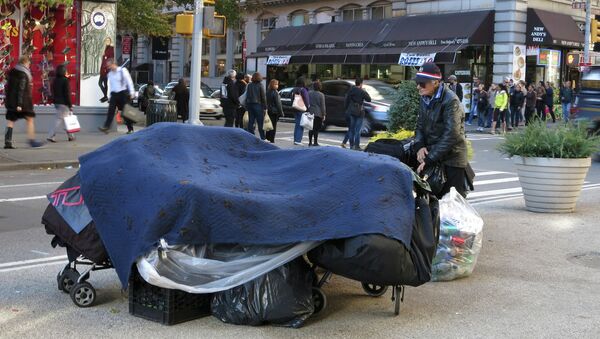Some cities even ban sitting for long periods of time, or lying down.
Already a third of cities nationwide ban outdoor camping in public areas, which the National Law Center on Homelessness and Poverty says is a 60 increase from three years ago.
A NLCHP report last summer blasted laws that the advocacy group say “criminalize” the homeless, such as anti-camping rules.
"There is a severe shortage of affordable housing and a lack of emergency shelter options in our communities, leaving homeless people with no choice but to perform basic acts of survival in public spaces,” said NLCHP Executive Director Maria Foscarinis.
“Despite a lack of any available alternatives, more cities are choosing to turn the necessary conduct of homeless people into criminal activity," she added. "Such laws threaten the human and constitutional rights of homeless people, impose unnecessary costs on cities, and do nothing to solve the problems they purport to address.”
City officials say the homeless are better served staying in shelters until housing becomes available, but homeless advocates say not only is affordable housing in most cities hard to find, but so are shelters. And once families are in shelters, the average stay is more than a year because housing is so scarce, says the Coalition for the Homeless.
It’s actually cheaper to house the homeless rather than leaving them outside, $31,000 versus $10,000 in Florida, says the Central Florida Commission on Homelessness. In North Carolina, the city of Charlotte saves close to $2 million a year after they built an apartment complex for the homeless. Homeless advocates say if more cities do that, not only would they save money but help the homeless as well.


